Find Help
More Items From Ergsy search
-

Redundancy Coaching Couch 4:Redundancy and Language
Relevance: 100%
-

Redundancy Coaching Couch 7: Redundancy and Judgement.MTS
Relevance: 62%
-

Redundancy Coaching Couch 5: Redundancy and Feedback.MTS
Relevance: 62%
-

Redundancy Coaching Couch 1: Redundancy and Presuppositions
Relevance: 62%
-

Redundancy Coaching Couch 2: Redundancy and Passion
Relevance: 61%
-

Redundancy Crusader and Annabel Kaye on communications in redundancy (5).MTS
Relevance: 59%
-

Redundancy Crusader and Annabel Kaye on scope and scale of redundancy (3).MTS
Relevance: 58%
-

Redundancy Crusader and Annabel Kaye on the Current Model of Redundancy (1).MTS
Relevance: 58%
-

Redundancy Crusader and Annabel Kaye on making redundancy a better experience (2).MTS
Relevance: 57%
-

What is the primary purpose of redundancy?
Relevance: 56%
-

What are the legal requirements for redundancy in the UK?
Relevance: 56%
-

What is the primary purpose of redundancy?
Relevance: 56%
-

What are the legal requirements for redundancy in the UK?
Relevance: 56%
-

How is redundancy pay calculated in the UK?
Relevance: 56%
-

Redundancy Coaching Couch 3: States
Relevance: 55%
-
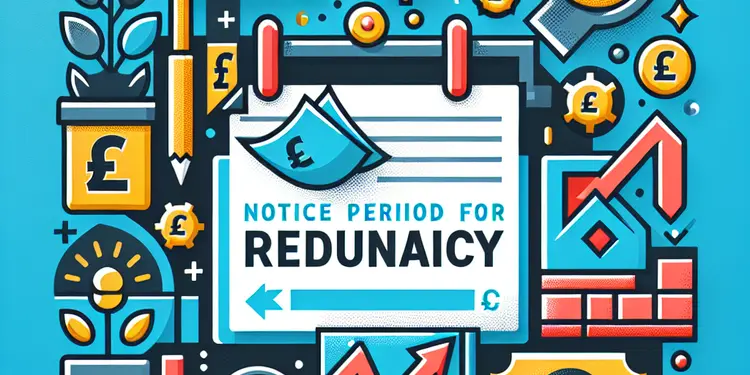
What is the notice period for redundancy?
Relevance: 55%
-

What is redundancy pay and who is eligible for it?
Relevance: 54%
-

What is redundancy pay and who is eligible for it?
Relevance: 54%
-
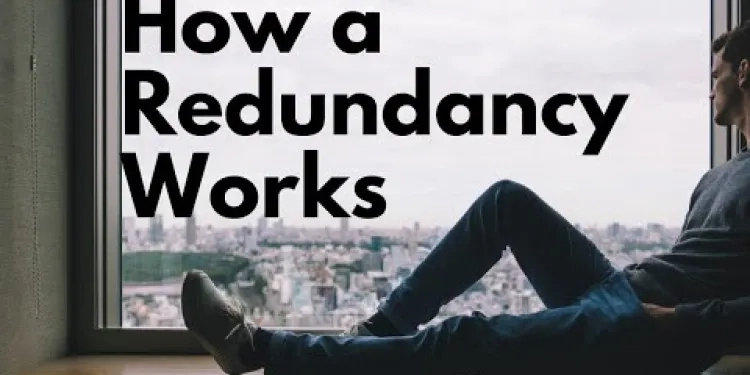
HOW A REDUNDANCY WORKS - General Information
Relevance: 54%
-
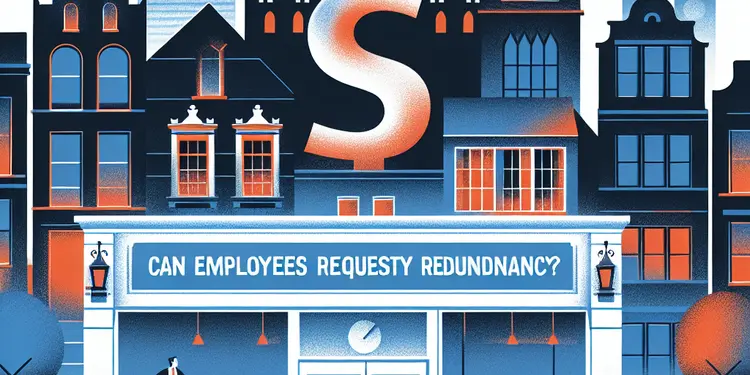
Can employees request voluntary redundancy?
Relevance: 54%
-

What is a fair selection process for redundancy?
Relevance: 54%
-

Can an employee appeal a redundancy decision?
Relevance: 53%
-

Will language barriers be an issue in EU hospitals?
Relevance: 53%
-

What is the role of trade unions in the redundancy process?
Relevance: 52%
-
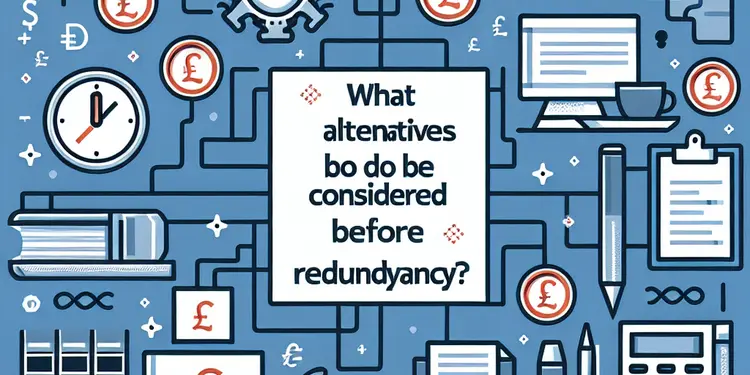
What alternatives should be considered before redundancy?
Relevance: 51%
-

Frequently asked questions about redundancy from ACAS
Relevance: 51%
-
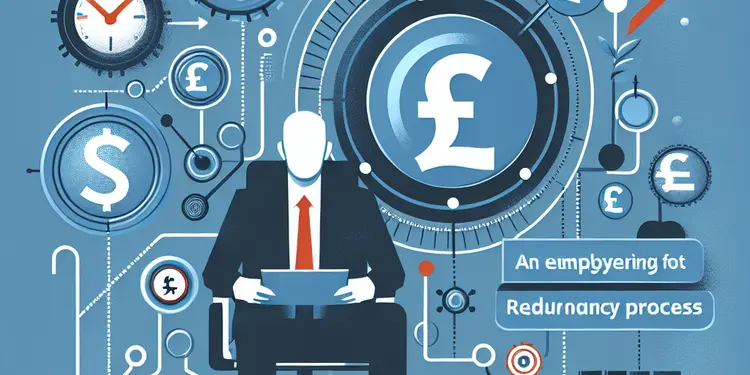
What happens if an employer does not follow the redundancy process?
Relevance: 51%
-

Are there any protections for employees on maternity leave during redundancy?
Relevance: 51%
-

What support can employees expect during redundancy?
Relevance: 50%
-
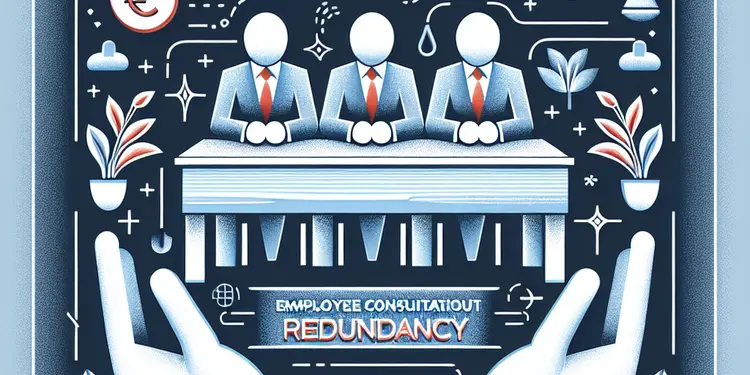
How should companies consult employees about redundancy?
Relevance: 50%
-

How should companies consult employees about redundancy?
Relevance: 50%
-

Is language a barrier for a hair transplant in Turkey?
Relevance: 49%
-

How should employers manage the emotional impact of redundancy on employees?
Relevance: 49%
-

Stroke - Speech and Language Therapist's Experience
Relevance: 49%
-

What languages do NHS dental clinics typically support?
Relevance: 47%
-

Is the DVSA Theory Test available in British Sign Language (BSL)?
Relevance: 41%
-

What language options are available for first aid courses?
Relevance: 36%
-
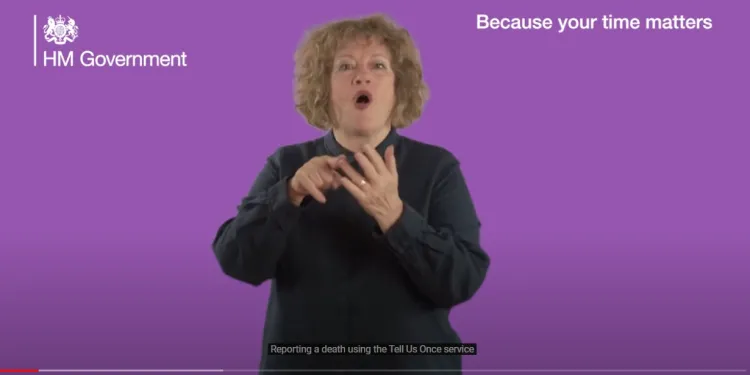
Reporting a death using the Tell Us Once service - Sign Language Version
Relevance: 32%
-
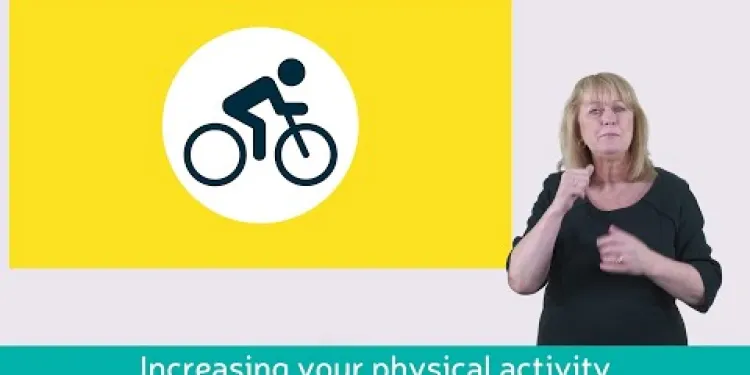
Learn about bowel cancer (British Sign Language version)
Relevance: 32%
-

How does autism affect communication?
Relevance: 21%
Redundancy Coaching Couch 4: Redundancy and Language
Understanding Redundancy
Redundancy is a term used primarily in the United Kingdom to describe job loss due to an employer needing to reduce their workforce. This can occur for several reasons, such as financial struggles, technological advancement, or organizational restructuring. Understanding redundancy is crucial for both employers and employees as it impacts not just the workforce but also the company's future prospects.The Role of Language in Redundancy
The language used during redundancy processes can significantly influence the outcome. Clear and empathetic communication helps in easing the transition for affected employees. Using direct yet sensitive terminology, explaining the reasons behind the decision, and offering supportive solutions can mitigate the negative impacts of redundancy. Avoiding jargon and maintaining transparency ensures that employees fully understand their situations and the steps ahead.Communication Strategies
Effective communication strategies during redundancy include holding face-to-face meetings when possible, providing written documentation, and offering follow-up support sessions. Using consistent language throughout the process helps to prevent misunderstandings. Employers should aim to convey optimism where appropriate and reassure employees about available support and resources.Support Mechanisms
Offering support mechanisms such as career coaching, financial advice, and emotional support is vital. Redundancy coaching can provide skills assessment, CV writing, and job search support to help employees transition to new opportunities. Effective redundancy coaching ensures that affected employees feel valued and supported, softening the impact of job loss.Legislation and Employee Rights
In the UK, redundancy processes are governed by specific legislation to protect employee rights. Employers are required to follow fair procedures, including consultations and providing redundancy pay where applicable. Familiarity with these legal obligations ensures compliance and builds trust between employers and employees during challenging times.Conclusion
Redundancy is an inherently challenging process, but thoughtful language and effective communication strategies can significantly alleviate its negative effects. By understanding and implementing supportive mechanisms and adhering to legal requirements, employers can manage redundancy with empathy and efficiency, ultimately aiding in the smoother transition for their workforce.Redundancy Coaching Couch 4: Losing Your Job and Language
What Does Redundancy Mean?
Redundancy means losing your job because the company needs to have fewer workers. This happens when the company has money problems, new technology, or changes how it is set up. Knowing about redundancy is important for both the company and the workers. It affects jobs and the company’s future.How Words Matter in Redundancy
The words used when talking about losing jobs are very important. Clear and kind words can help make this tough time better for workers. It’s good to explain why the decision was made. Using simple words and being honest helps workers understand what is happening and what they should do next.Talking About Redundancy
Good ways to talk during redundancy include meeting face-to-face, giving written notes, and having follow-up support sessions. Using the same words all the time stops confusion. It’s important to give hope when possible and let workers know about help they can get.Help for Workers
It’s important to give help like career coaching, money advice, and emotional support. Redundancy coaching can check skills, help with writing CVs, and look for new jobs. This support helps workers feel cared for and makes losing a job less hard.Rules and Worker Rights
In the UK, there are rules about redundancy to keep workers’ rights safe. Companies must be fair and talk to workers, and they might have to give redundancy pay. Knowing these rules helps build trust between companies and workers during tough times.Ending Thoughts
Losing a job is hard, but using the right words and talking well can help. By giving help and following the rules, companies can handle job loss with care, making it easier for workers to move on.Frequently Asked Questions
What is redundancy?
Redundancy occurs when an employer reduces their workforce because a job or jobs are no longer needed.
Am I entitled to redundancy pay?
Employees with at least two years of continuous service are typically entitled to statutory redundancy pay, depending on age and length of service.
How is redundancy pay calculated?
Statutory redundancy pay is based on age, weekly pay, and the number of years worked, up to a certain maximum limit.
What notice period should I receive for redundancy?
The notice period depends on your length of service but typically ranges from one week (for service of more than one month but less than two years) to 12 weeks (for 12 years or more).
Can I be made redundant while on maternity leave?
Yes, but it must be a genuine redundancy situation, and not related to your maternity leave. You should be offered a suitable alternative role, if available.
What should be included in my redundancy consultation?
During the consultation, you should be given information about why you are being made redundant, selection criteria, and any potential alternative employment options within the company.
What is a redundancy selection criteria?
It is the process and criteria set by the employer to select which employees will be made redundant, such as skills, experience, and performance.
Can I appeal against redundancy?
Yes, if you feel you were unfairly selected or the process was not followed correctly, you can appeal within your company's protocol.
What are my rights during a redundancy process?
You have the right to a fair redundancy process, proper consultation, redundancy pay (if eligible), and notice period in accordance with your contract and employment law.
How can I prepare for redundancy?
Update your CV, seek advice on your rights, consider financial planning, and explore training or career development opportunities.
Are there any support services available for redundancy in the UK?
Yes, there are various support services including jobseeker services, career counselling, and financial advice through organisations such as Jobcentre Plus, ACAS, and private career advisors.
Can I get unemployment benefits after redundancy?
Yes, you may be eligible for Universal Credit or Jobseeker's Allowance. It’s best to apply as soon as possible after your last working day.
What happens to my pension if I am made redundant?
Your pension entitlement will depend on the scheme rules, but in most cases, you retain the contributions already made, and you may have options to transfer or maintain your pension.
What is voluntary redundancy?
Voluntary redundancy is when employees are given the option to volunteer for redundancy, often with an enhanced redundancy package.
What should I do if I believe my redundancy was unfair?
If you believe your redundancy was unfair, you should first raise the issue with your employer. If unresolved, you may take your case to an employment tribunal.
What does redundancy mean?
Redundancy is when your job no longer needs you. This could happen because a company needs to save money or there is less work. It is not because you did something wrong.
If this happens, it's important to talk to someone for help. You can ask a grown-up or a friend to explain more.
There are tools that can support you, like:
- A talking dictionary to help understand words.
- Pictures that show what redundancy means.
Redundancy happens when a company lets people go because it does not need their jobs anymore.
Can I Get Redundancy Pay?
Redundancy pay is money you get if you lose your job because the business doesn't need you anymore. Here is how you can find out if you can get it:
- How long have you worked? You need to have worked at the job for at least 2 years.
- Reason for leaving: Your job needs to be ending because the business has less work or is closing down.
- Your work type: You must be an employee, not self-employed or on a temporary contract.
If you think you should get redundancy pay but are not sure, ask someone for help. You can talk to Citizens Advice or use a service like this online calculator to check.
If you have worked for a company for 2 or more years, you might get some extra money if you lose your job. This money helps you while you look for a new job. The amount you get can depend on how old you are and how long you have worked there.
How do you work out redundancy pay?
When someone loses their job because the company does not need them anymore, they might get some money. This is called redundancy pay.
Here is how you can figure out how much money someone gets:
- How long they worked: Count the number of years they worked at the company.
- How old they are: The money might be different depending on their age.
- How much they got paid: Look at their weekly pay before they lost their job.
These things help decide the money they get.
If you need help, you can use a calculator online to work it out. Ask a friend or an adult if you need help using the calculator.
Redundancy pay is money you get if you lose your job. How much you get depends on your age, your weekly pay, and how many years you worked. There is a limit on how much you can get.
How much time will I get before losing my job?
Your notice period is how long you work after you say you are leaving your job.
If you have worked for more than one month but less than two years, you give one week of notice.
If you have worked for 12 years or more, you give 12 weeks of notice.
If it is hard to understand, ask someone to explain. You can also try reading it out loud.
Can I lose my job when I am on maternity leave?
If you are on maternity leave, you might worry about losing your job. Here is what you need to know:
- It is generally not allowed to lose your job just because you are on maternity leave.
- If your workplace needs fewer workers, they might decide some people can leave. This is called redundancy.
- If your job is ending because of redundancy, your boss must follow rules to do it the right way.
- Your boss should:
- Tell you why your job might end.
- Talk with you about finding another job for you.
- If you are worried, talk to someone who can help, like a friend or a helper at work.
Tools that can help you understand:
- Ask someone to read it with you.
- Use a computer or device that reads text aloud.
Remember, you can ask questions if you do not understand something.
Yes, you can be made redundant. But it must be real and not because you are on maternity leave. If there is another job you can do, they should offer it to you.
What should be in my meeting about losing my job?
When you talk to your boss, they should tell you why you have to leave your job. They should explain how they decide who has to leave. They should also tell you if there are other jobs in the company you can apply for.
What does redundancy selection criteria mean?
'Redundancy selection criteria' are the rules a company uses to decide which people will lose their jobs if jobs need to be cut. It helps the company choose fairly.
If you find this hard to understand, ask someone to explain it to you. You can also use tools that read the text out loud or break it into smaller parts.
This is how a boss decides which workers will lose their jobs. They look at things like skills, experience, and how well someone does their job.
Using tools like highlighting important words in bright colors or reading out loud can help understand information better. Working with a friend or family member to talk through ideas can also make things clearer. Remember to take breaks and ask questions if you need help.
Can I ask for a change if I lose my job?
Yes, if you think it was unfair or the process was not done right, you can ask your company to look at the decision again. Follow the company's rules to make an appeal.
Here are some tips that might help:
- Ask someone to read it with you.
- Use a ruler or your finger to help keep your place in the text.
- Break down the text into smaller parts to understand better.
What are my rights if I lose my job because of redundancy?
If you might lose your job because the company doesn't need as many workers, you have rights.
- You should get clear information about why there are job cuts.
- You have the right to be treated fairly and with respect.
- You might get money called redundancy pay.
- You should have a chance to find a new job in the company.
If you find this hard, ask someone you trust to help you understand. You can also use tools that read out loud or simplify words for you.
You have the right to be treated fairly if you lose your job. You should be told what's going on, you might get some extra money, and you should be told in advance when your job will end. This should all follow the rules and your work agreement.
What can I do if I lose my job?
Here are some things to help you if you might lose your job:
- Save Money: Try to put aside some money in case you need it later.
- Learn New Skills: Think about learning something new that can help you get another job.
- Update Your CV: Make sure your CV tells people all about your skills and the jobs you have done.
- Ask for Help: Talk to people who can help you, like careers advisors.
- Talk to Friends and Family: They might have good ideas or know someone who can help you.
- Stay Positive: Remember, you can find another job!
Here are some tools to help:
- Budget Planner: This can help you plan how to save and spend your money.
- Online Courses: You can find free courses on the internet to learn new things.
Make sure your CV is up to date. Ask someone you trust about your rights. Think about how you manage your money. Look for ways to learn new things or get better at your job.
Can I get help if I lose my job in the UK?
Yes, there is help for people who lose their jobs in the UK. Here are some ways you can get support:
- Job Centre Plus: They can help you find a new job and give advice.
- Money Advice: There are people who can help you with money problems.
- Training Programs: You can learn new skills to get a new job.
- Talk to Someone: It can help to talk about how you feel. You can talk to a friend or a counselor.
Yes, there are lots of people and places that can help you. They can help you find a job, talk about your career, and give money advice. Some places that can help are Jobcentre Plus and ACAS. You can also talk to private career helpers.
Can I get money help if I lose my job?
Yes, you might get money from Universal Credit or Jobseeker's Allowance. It’s a good idea to apply right after your last day at work.
What happens to my pension if I lose my job?
If you lose your job, don't worry. You still have your pension. Here is what you can do:
1. **Keep Your Pension:** Your old employer keeps your money safe. It stays in your pension account.
2. **Move Your Pension:** You can move your pension to a new account if you want. It's like moving your savings to another piggy bank.
3. **Ask for Help:** If you don't understand, ask for help. You can talk to someone who knows about pensions. This can be a person at your workplace or a pension expert.
4. **Use Tools:** You can use tools like a calculator to see how much money you have saved. There are also guides online to help you understand.
Remember, your pension is safe and there are people and tools to help you understand what to do next.
The rules of your pension plan will tell you what happens with your pension. But usually, you keep any money you have already put in. You might be able to move your pension money to a new plan or keep it where it is.
What is voluntary redundancy?
Voluntary redundancy is when a person is asked if they want to leave their job. The person can choose to say "yes" or "no". If they say "yes", they might get some money for leaving. This is a choice and not forced.
To help understand this better, you can:
- Ask someone to explain it in their own words.
- Use pictures or drawings to show what it means.
- Talk about it with a friend or family member.
Voluntary redundancy is when a company asks workers if they want to leave their job on purpose. They usually get some extra money for leaving.
What can I do if I think losing my job was unfair?
If you feel losing your job wasn't fair, here are some steps you can take:
- Talk to your boss: Ask them why you lost your job. Sometimes things can be fixed by talking.
- Get advice: Talk to someone who can help. A union, a friend, or a family member might give you advice.
- Write down what happened: Keep notes about what was said and done at work. This can help you understand what happened.
- Find support: There are groups that help people who lost their jobs. They can give you advice and support.
Remember, getting help from others is important if you are upset or unsure what to do.
If you think it was not fair to lose your job, talk to your boss first. If that does not work, you can ask for help from a special work court called an employment tribunal.
Useful Links
This website offers general information and is not a substitute for professional advice.
Always seek guidance from qualified professionals.
If you have any medical concerns or need urgent help, contact a healthcare professional or emergency services immediately.
Some of this content was generated with AI assistance. We’ve done our best to keep it accurate, helpful, and human-friendly.
- Ergsy carfully checks the information in the videos we provide here.
- Videos shown by Youtube after a video has completed, have NOT been reviewed by ERGSY.
- To view, click the arrow in centre of video.
- Most of the videos you find here will have subtitles and/or closed captions available.
- You may need to turn these on, and choose your preferred language.
- Go to the video you'd like to watch.
- If closed captions (CC) are available, settings will be visible on the bottom right of the video player.
- To turn on Captions, click settings .
- To turn off Captions, click settings again.
More Items From Ergsy search
-

Redundancy Coaching Couch 4:Redundancy and Language
Relevance: 100%
-

Redundancy Coaching Couch 7: Redundancy and Judgement.MTS
Relevance: 62%
-

Redundancy Coaching Couch 5: Redundancy and Feedback.MTS
Relevance: 62%
-

Redundancy Coaching Couch 1: Redundancy and Presuppositions
Relevance: 62%
-

Redundancy Coaching Couch 2: Redundancy and Passion
Relevance: 61%
-

Redundancy Crusader and Annabel Kaye on communications in redundancy (5).MTS
Relevance: 59%
-

Redundancy Crusader and Annabel Kaye on scope and scale of redundancy (3).MTS
Relevance: 58%
-

Redundancy Crusader and Annabel Kaye on the Current Model of Redundancy (1).MTS
Relevance: 58%
-

Redundancy Crusader and Annabel Kaye on making redundancy a better experience (2).MTS
Relevance: 57%
-

What is the primary purpose of redundancy?
Relevance: 56%
-

What are the legal requirements for redundancy in the UK?
Relevance: 56%
-

What is the primary purpose of redundancy?
Relevance: 56%
-

What are the legal requirements for redundancy in the UK?
Relevance: 56%
-

How is redundancy pay calculated in the UK?
Relevance: 56%
-

Redundancy Coaching Couch 3: States
Relevance: 55%
-

What is the notice period for redundancy?
Relevance: 55%
-

What is redundancy pay and who is eligible for it?
Relevance: 54%
-

What is redundancy pay and who is eligible for it?
Relevance: 54%
-

HOW A REDUNDANCY WORKS - General Information
Relevance: 54%
-

Can employees request voluntary redundancy?
Relevance: 54%
-

What is a fair selection process for redundancy?
Relevance: 54%
-

Can an employee appeal a redundancy decision?
Relevance: 53%
-

Will language barriers be an issue in EU hospitals?
Relevance: 53%
-

What is the role of trade unions in the redundancy process?
Relevance: 52%
-

What alternatives should be considered before redundancy?
Relevance: 51%
-

Frequently asked questions about redundancy from ACAS
Relevance: 51%
-

What happens if an employer does not follow the redundancy process?
Relevance: 51%
-

Are there any protections for employees on maternity leave during redundancy?
Relevance: 51%
-

What support can employees expect during redundancy?
Relevance: 50%
-

How should companies consult employees about redundancy?
Relevance: 50%
-

How should companies consult employees about redundancy?
Relevance: 50%
-

Is language a barrier for a hair transplant in Turkey?
Relevance: 49%
-

How should employers manage the emotional impact of redundancy on employees?
Relevance: 49%
-

Stroke - Speech and Language Therapist's Experience
Relevance: 49%
-

What languages do NHS dental clinics typically support?
Relevance: 47%
-

Is the DVSA Theory Test available in British Sign Language (BSL)?
Relevance: 41%
-

What language options are available for first aid courses?
Relevance: 36%
-

Reporting a death using the Tell Us Once service - Sign Language Version
Relevance: 32%
-

Learn about bowel cancer (British Sign Language version)
Relevance: 32%
-

How does autism affect communication?
Relevance: 21%


